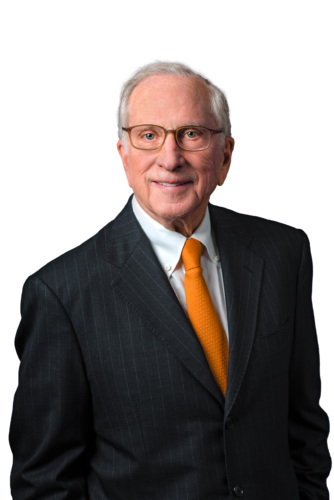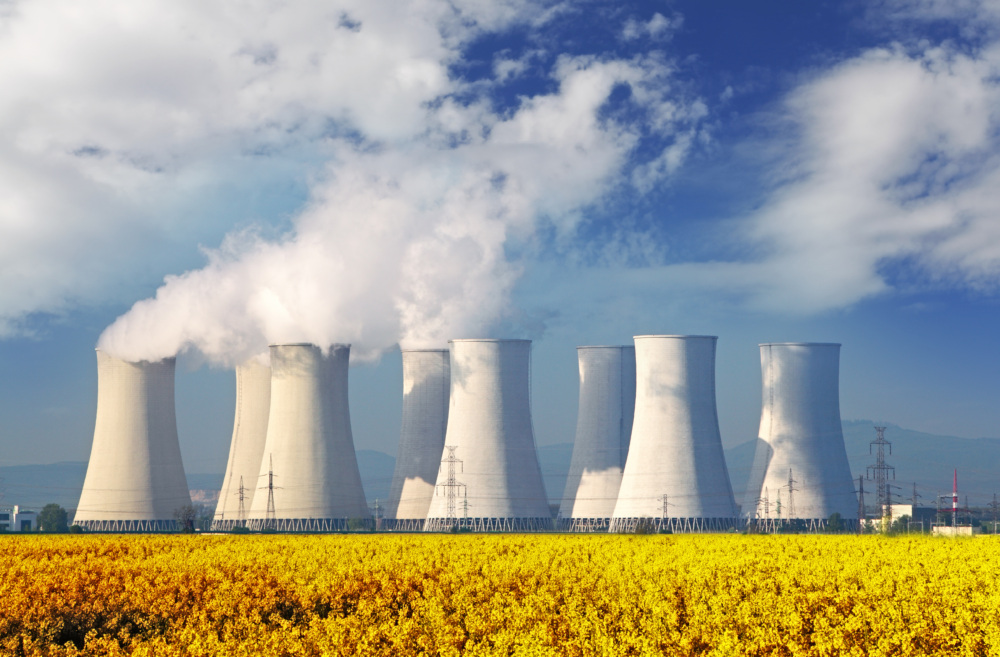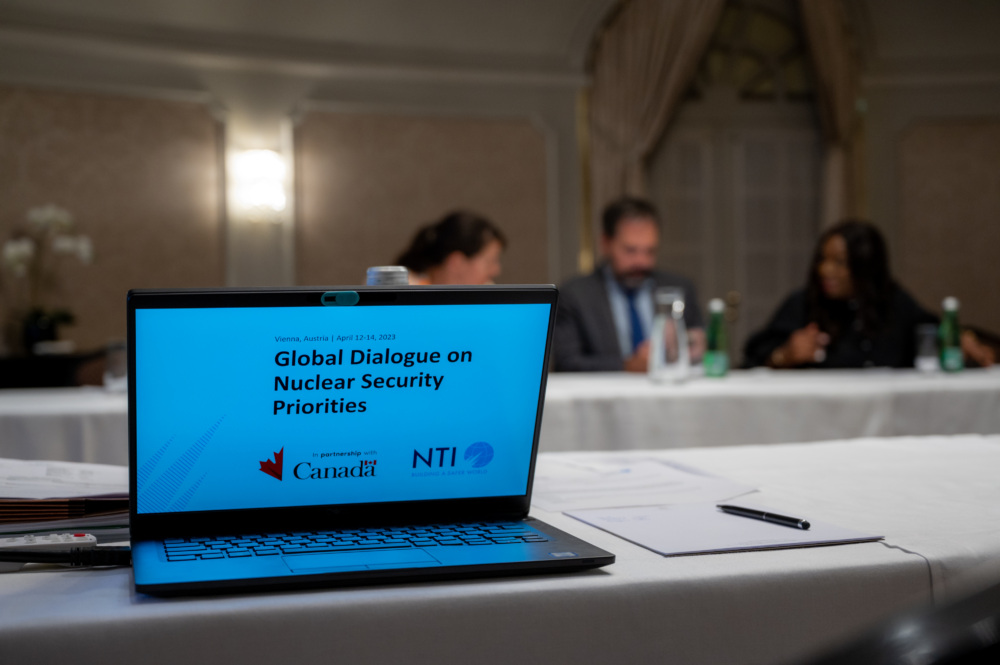
Sam Nunn
Co-Founder and Co-Chair, NTI
Thank you Vartan Gregorian, Members of the Carnegie Board of Trustees, the Carnegie Endowment, the Carnegie family, our Yale Law Conference sponsors, and distinguished jurists.
The honor of receiving this award soars because of the immense credibility and accomplishments of both the organizations giving the award and the individual with whom I share it.
To receive this award for nuclear security from the Carnegie Corporation of New York and the Carnegie Endowment, to receive it alongside my friend and trusted partner, Richard Lugar and to have the award named for the two of us — to inspire others working to reduce nuclear dangers — is a wonderful honor for me. Thank you.
At the dawn of the nuclear age — after the devastation of World War II, including Hiroshima and Nagasaki—World War II leader General Omar Bradley said in a speech:
“The world has achieved brilliance without conscience. Ours is a world of nuclear giants and ethical infants. We know more about war than we know about peace, more about killing than we know about living.”
The enduring work of Andrew Carnegie is to reverse this record of history — to move toward a world where difficult disputes are resolved not by war, but by the rule of law, cooperation and international justice. This is the mission of the Peace Palace, and you distinguished judges and legal scholars make major contributions. Thank you for your valuable leadership. It is a double honor to receive this award in your presence.
Andrew Carnegie’s family was so poor in 1848 that they had to borrow money to emigrate to America — which was probably the most productive loan in the history of global finance. Some 60 years later, Carnegie endowed important organizations dedicated to the cause of peace and understanding. Many decades later, at a crucial moment for global security, Andrew Carnegie’s philanthropic vision made a decisive difference in the cause of peace.
It was in the summer of 1991. I had just returned home from an informative but alarming trip to Moscow, convinced that the Soviet Union was coming apart. Shortly thereafter, Dick Lugar and I joined together to work on what some immediately termed a wacky idea – to spend U.S. defense dollars to secure and help destroy Soviet weapons of mass destruction so that we could protect the world from disaster if and when the empire broke apart with nuclear, chemical and biological weapons spread over many time zones.
Some criticized this effort as “aid to the Soviet military,” and the idea was initially in trouble. But under David Hamburg’s leadership, the Carnegie Corporation had recently funded a crucial report on the immense danger of the possible loss of control of Soviet nuclear, chemical and biological weapons.
This Carnegie report – and its author, Ash Carter – helped us overcome strong opposition in mid-November of 1991. A week later — in what Congressional Quarterly called “a remarkable last-minute turnaround” — the Senate approved the Nunn-Lugar Amendment 86-8. Two weeks later, President Bush signed the bill into law. Two weeks after that, the Soviet Union collapsed.
The role of Carnegie was indispensable.
Another indispensable player was, of course, the distinguished Senator from Indiana – and our names now may be forever linked. I told Dick’s wife, Charlene, a couple of years ago that when I joined Dick Lugar in a partnership, like her, I had to give up half my name!
The Nunn-Lugar legislation never would have passed without Dick Lugar. Dick built his reputation on his deep knowledge, his hard work and his integrity, and for 35 years in the United States Senate, he has made effective use of that reputation and those skills when it mattered most for our nation and the world. 1991 was one of those times when Dick’s leadership mattered most.
In the Senate and beyond, I could never have found a better partner or more trusted friend. I look forward to our continued work together through the Nuclear Threat Initiative on the crucial security and foreign policy issues facing our nation and the world. Knowing Dick, he will never slow down, as evidenced by his trip earlier this month to Russia urging an extension of the Nunn-Lugar program, as well as U.S.- Russian cooperation in eliminating Syria’s chemical weapons.
Since we started the Nuclear Threat Initiative in 2001, Dick has been a stalwart member of our Board – and so has Jessica Mathews, the superb leader of the Carnegie Endowment. Vartan and Carnegie have been with us every step of the way – with advice, support, and resources – and most of all, with inspiration and encouragement. Thank you, Vartan. I am grateful for your leadership and for our continued partnership.
Global cooperation and strong, courageous leadership will be required to meet the nuclear security threats of the 21st century – in particular, building a solid consensus for reversing reliance on nuclear weapons globally as a vital contribution to preventing their proliferation into dangerous hands, and ultimately ending them as a threat to the world.
Some say we’re naïve to believe that other countries will work with us in climbing this high mountain step by step. I suspect the same thing was said about Andrew Carnegie’s vision. To the contrary, I believe it’s naïve to think we can avoid a catastrophe if we continue to keep thousands of nuclear weapons on high alert and continue the proliferation of nuclear weapons and materials globally.
The greatest threat of all is indifference to the danger — the comforting yet false belief that the threat is not urgent, pretending that we don’t need partnerships and cooperation for nuclear security. No single state acting alone can fully protect itself from nuclear dangers, and the same is true for biological dangers.
Many who are complacent argue that we’ve avoided nuclear catastrophe for more than a half-century, so we might as well just keep doing what we’ve been doing.
It is human nature to resist change. The status quo often feels safer than change. But the nuclear status quo is a mirage. And the nuclear danger is either going to increase or be reduced—depending on what we do.
I recharge my batteries frequently by asking myself two questions: If a nuclear disaster occurs—what would we wish we had done to prevent it? And why don’t we do it now?
Scientists often explain the decline of species with the words — too slow to adapt to a changing environment.
Mankind must – and can — avoid this epitaph.
Thank you for this award. I will continue to do all that I can to deserve it.
Sign up for our newsletter to get the latest on nuclear and biological threats.
To make good on their COP28 pledge, countries need a new approach to building, regulating, and financing nuclear technology.
Lessons Learned from 10 Years of the Global Dialogue on Nuclear Security Priorities
The NTI Index is recognized as the premier resource and tool for evaluating global nuclear and radiological security.


